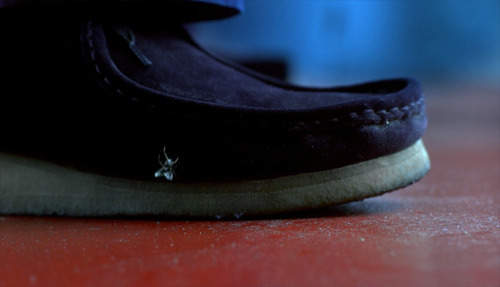Why ‘Fly’ might be the most important episode of Breaking Bad
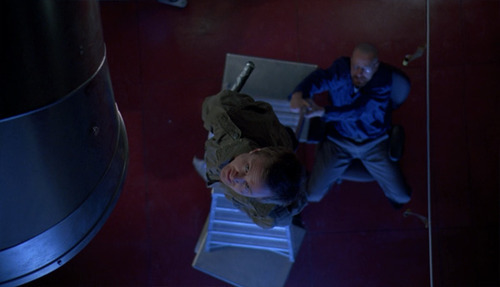
Reviews of the episode 'Fly' invariably hit the key points - it's the very definition of a bottle episode, and people either thought it was great or felt they'd wasted an hour. There's also sure to be some commentary on how the episode succinctly summed up Walt's moral struggle to that point.
We've been privy to Walt's OCD tendencies in the past. When receiving his cancer diagnosis, Walt focused on the blot of mustard on the doctor's jacket. In a later episode, he turned back, compulsively, to the pool of his hotel to retrieve a band-aid from the water. He fixed a wobbly table at the hospital with a folded subscription card, and tore up the underbelly of his house in search of "rot". Cancer is exchangeable with dropped condiments, a band-aid with infidelity, and a table with guilt at a hit gone wrong (or at least, redirected). The rot isn't in Walt's floorboards - it's within himself.
Toward the end of 'Fly', Jesse drugs Walt's coffee in the hopes of being able to continue with the cook that Walt's obsession with the "contaminant" has stalled. But Walt's fixation has become contagious, and Jesse climbs a ladder precariously balanced between two rolling carts to get to the fly. Walt clutches the base of the ladder, as much for support as to steady it, as he falls further under the influence of the pills. Jesse steps up to the top of the ladder - you know, the part the sticker tells you not to stand on - and stretches up to smack the fly. Walt finally begs him to come down. And Jesse does. As he steps down to the floor and safety, the fly lands on the step directly in front of him. And Jesse thwacks the shit out of it.
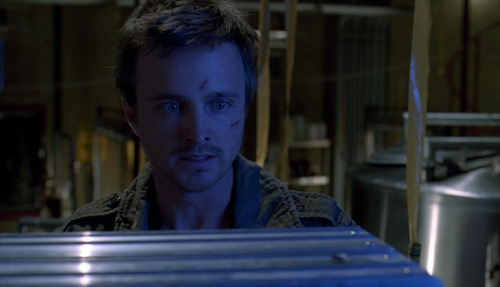
Something I enjoy about Breaking Bad are the layers. The flash-backs and -forwards, and Walt's chemistry talks frequently work on two or three levels. An early example of this is his classroom talk about mercury fulminate. Immediately, the discussion of explosions blackly underlines what's going on in Walter's guts at that very moment. Of course, it also introduces the compound that will allow Walt to blow the windows out of Tuco's "office", earning that crazy mofo's respect. But when Walt tells his class, "...the faster they undergo change, the more violent the explosion," the line isn't about barf or even mercury fulminate. The explosion is Walt himself, as he breaks bad.
Because of the literary quality of the show, and the love the writers seem to have for foreshadowing and meta commentary, I don't think it's a stretch to say that 'Fly' may have farther reaching consequences than one episode or even one season. At the beginning of the current season, we meet Walt, alone at 52 with a head full of hair and a trunk full of guns. Why is he alone and who are the weapons meant for?
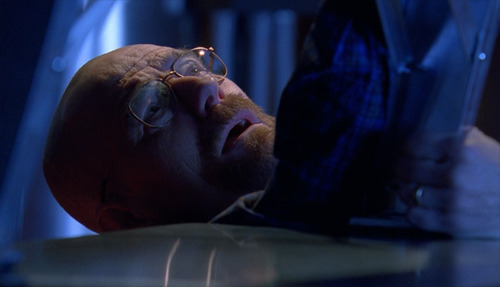
While Walt's moral struggle gets the column inches, 'Fly' is a two man show. The entire episode focuses on Walt and Jesse, the two characters at the heart of the show. It hinged on Walt's admission that he should have died, but the actual resolution - the death of the fly - was offered by Jesse. What if, in similar fashion, the split final season turns out not to be the struggle for Walt's soul (which has been doomed since day one, given the premise of the show) but Jesse's?
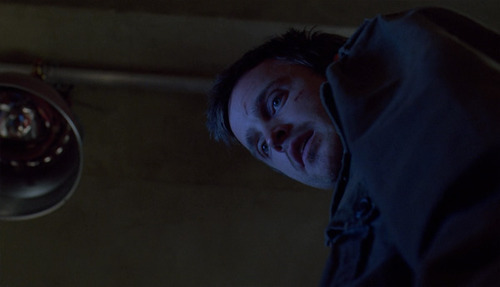
Breaking Bad isn't a stark portrait of the reality of drugs and the effect they have on the communities they're a part of, like The Wire. Things happen too perfectly, too artfully. Instead, Breaking Bad is akin to the dark humor, open spaces, and character portraits of the Coen brother's filmography. While the Coen connection is mentioned by critics and fans often as a stylistic cousin, thematically, I believe Breaking Bad is closer to Road to Perdition.
In Sam Mendes' understated mobster tale, a father balances his journey of vengeance with his desire to keep his son from following in his footsteps. There is never any question of Tom Hanks' character getting a happy ending. There is also no fucking way his son, Michael, will kill Jude Law's skeevy photographer and damn his own soul in the process. This ending is inevitable; without it, the movie would fall apart into a beautifully shot but ultimately hollow film.
The uneasy relationship between fathers and sons, and the question of lost souls are two pieces both Breaking Bad and Road to Perdition have in common. I believe the inevitable, thematic end to the journey will be a third, in which the already doomed father sacrifices himself in order to protect the soul of his son.
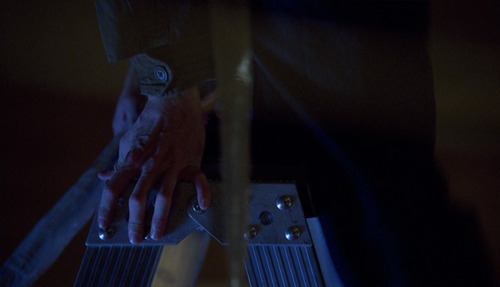
My theory is this - Jesse has climbed that shaky ladder yet again. In a painful twist, he's the one to take Gus's place at the top of the ABQ meth food chain, not Walt. While fans generally accept that Walt is a lost cause, most still hold out hope that Jesse will survive the show, body and heart intact. But we've seen Jesse's dark side too. The Jesse that emerged after being beaten by Hank, after killing Gale and watching Gus murder Victor, the Jesse we've only seen glimpses of, is the Jesse he's in danger of turning into permanently if pushed far enough by Walt.
And Heisenberg is his fly. Note that I say Heisenberg - the man Walt has become. As in the bottle episode, Walt is both the reason Jesse is up there, and the voice coaxing him down. I think Walt's final plan, for reasons both selfish and sacrificial, is going to be to offer himself as a target for Jesse. In some way, going after Heisenberg is going to bring Jesse down off that ladder. And whether Walt survives the encounter or not will have everything to do with which man he really is at that point - black-hatted Heisenberg or Jesse's "Mr. White".
